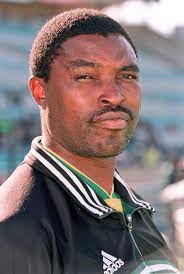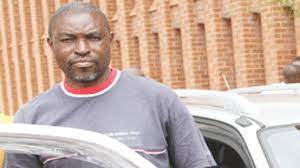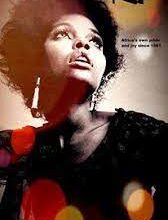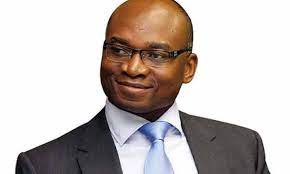The Day Misheck Chidzambwa Engaged in a Fist Fight in Front of a State President

Misheck Chidzambwa

By Kamangeni Phiri 23/11/2022
Misheck “Scania” Chidzambwa, the late Dynamos steely defender who died in 2021, was generally regarded as a cool customer both on and off the field.
Known to some as soccer’s gentle giant, Chidzambwa, just like elder brother Sunday, brooked no nonsense from strikers, a quality that helped him become captain at both club and national level.
He made history by becoming the first Zimbabwean national soccer team captain to lift an international cup in 1985.
The late Mick Poole, who was the Warriors head coach at the time, saw something special in the player he nicknamed Rocky and appointed him his captain for the 1985 CECAFA Senior Challenge Cup tournament.
The 1985 team had many talented players, including David Mwanza (late), Joel “The Headmaster” Shambo (late), and talented goalkeeper Japhet “Shortcut” Mparutsa, but Poole chose Misheck as his captain.
Veteran soccer pundit, Charles Mabika, writing for local daily, The Herald, said Rocky’s character, portrayed by Hollywood actor Sylvester Stallone in an eight-sequel production about the rags-to-riches life of a heavyweight boxer who had explosive fists inside the ring, had strong leadership qualities.
“According to Poole, the big Chidzambwa was cut from the same cloth,” he said.
It came as no surprise years later when Misheck turned out to be a very good coach at both club and national level. He wrote another piece of history in 2000 with the national team when he became the first coach to win the COSAFA cup. The warriors thrashed Lesotho 6-0 on aggregate in the final.
In the late 1990s, Chidzambwa served as a national team assistant coach under late Warriors coaches, Ian Porterfield and the Dutchman, Clemence Westerhof, before eventually taking over in 2000.
He went on to help the now defunct Blue Ribbon FC gain promotion into the premier league in 2010. Misheck is the first and only gaffer so far to bring a major trophy to Manicaland province after he won the Castle Cup with Tanganda in 1993, beating Caps United on penalties.
Standing at more than 6 ft out of his socks, Scania was a giant who used his body to good effect in thwarting rivals’ attacks. His thin soprano-like voice, which was in stark contrast to his huge frame, was at times mistaken as a sign of indecisiveness and softness. Although thin, Misheck’s tone was unmistakably brash and it pulled no punches, making him an assertive and authoritative leader.
But if ever there was a match that brought out the worst and best in Chidzambwa it had to be Dynamos’ immortal clashes with bitter rivals, Caps United.
Once Scania donned his favourite team’s blue and white colours playing against the Green Machine, everything from discipline, coolness to professional etiquette would fly through the window.
“As a player Misheck Chidzambwa was uncompromising. He played to win,” said author and soccer fan, Lot Danai Chikasha writing for Herald in 2021, “I remember well his battles with another fierce competitor, Shackman, “Mr Goals” Tauro. They both hated to lose. The two often captured the spirit of the Harare derby between Caps United and Dynamos. Beautiful football, hard tackles, sneaky elbows, skills and goals! The derbies had it all and the two protagonists were often at the centre of the drama.”
In one such match, the two engaged in a fist-fight which led to their being shown red cards by the match official of the day, soccer-loving former President of Zimbabwe, Canaan Banana (late).
Chidzambwa and Tauro, who remained close friends despite the exchange of blows, shook hands after the match and headed for a drink together.
But Misheck made no such attempt to kiss and make with Rio Tinto legend Joseph Zulu in 1983 after he ended Sunday Chidzambwa’s soccer career with a crude tackle.
Zulu was turning out for Rio Tinto, when the mining team was playing against Dynamos at Eiffel Flats ground in Kadoma. The incident occurred just a week before Sunday’s wedding to wife, Constance Jiro.
Misheck erupted like a volcano and gave chase to Zulu with the intention of beating him up. He was eventually restrained by team mates and players of the opposing team.
Sunday is Misheck’s elder brother and the siblings were using Marimo as their surname then.
The Chidzambwa brothers were very close to each other. Sunday, as the elder sibling, influenced Misheck’s career in a big way and would always take his young brother with him to any club that he turned out for.
When Sunday’s first club, Metal Box, sold its franchise in 1973 and rebranded to Chikwanha Rangers, the veteran coach took it as an opportunity to introduce his young brother to big time soccer.
Misheck’s competitive career was to begin in 1974 at Chikwanha Rangers where he formed a formidable defence line with his brother. Sunday almost regretted his decision after Misheck was injured in his first game while turning out for Chikwanha Rangers reserves.
“I had recruited Misheck without my father’s knowledge. His hand was in plaster, in an arm sling when we got home. Our father was so furious with me.
‘What does he get from playing soccer? Next time you should have your own son that you will take for soccer. Leave my son out of this’ he fumed. It remains one incident that I find difficult to forget,” said Sunday.
When Sunday moved to Dynamos in 1977, other super league teams that included giants, Rio Tinto, also attempted to sign Misheck from Chikwanha Rangers.
But Sunday wanted his young brother closer to him. He persuaded the then Dynamos coach Shepherd Murape to recruit Misheck.
“They were reluctant at first but eventually gave in and Misheck joined me in 1978. The following week Dynamos had a game in Gweru against Gweru United and I got injured. Misheck used to play right back but he was a utility player who could play centre back as well. He played in my place and when the team returned to Harare the coaches told me ‘your brother plays better than you’,” Sunday told yesteryear soccer player-turned television host, Alois Bunjira, in a recent interview.
At Dynamos the telepathic brothers carved a name for themselves on the local football arena. Misheck starred together with Sunday as twin centre-backs at the heart of the Dynamos’ rearguard, leading the Harare giants to seven league titles and several cup titles during their illustrious partnership. The two eventually played together in the Warriors squad.
“It was easy playing with my brother because we had a natural understanding and I would know exactly what to do when he had the ball or when he did something. I’m also happy for what we have contributed to local football as brothers,” Misheck said in one of his many archived interviews.
The late gaffer, like most players of that era, was a part-time footballer as he was employed as a police officer, working in the Signals department.
But unlike most of his peers, Misheck did not carve his skills playing plastic ball but a tennis ball bought for him by his policeman father in Bulawayo.
“We would play soccer using a tennis ball a lot when we were young, moving from one police camp to the next until football became part of us. And from there I never looked back,” Misheck Chidzambwa revealed.
Scania was born Misheck Chidzambwa on June 21, 1955 in Mukore Village, Chivhu in Chikomba District under Mashonaland East. He was the fourth of six children born to Ezekiel Chidzambwa and Emma Chidzambwa (both late).
Misheck was named after his paternal grandfather, Misheck Marimo Chidzambwa. Son of a police officer, Misheck did his Sub A in the 60s at Ross Camp in Bulawayo.
Both Misheck and Sunday used Marimo as their surname for the greater part of their playing days. This gave rise to rumours that the boys had been raised by their maternal uncle.
Sunday explained the change:
“Our birth certificates that gave our surname as Chidzambwa and the rest of the family was Chidzambwa. Marimo was our paternal grandfather’s middle name who was Misheck Marimo Chidzambwa. He is the one who assisted Mishek and I in obtaining national IDs, and our surname was given as Marimo, our grandfather’s middle name.
The problem started when we acquired passports which gave our surname as Chidzambwa since one uses a birth certificate to acquire one. So we had to correct the decades old mistake of using Marimo as our surname.”
On June 24, 2021, the giant Misheck breathed his last after losing his long battle with a stomach ailment that had troubled for more than a year.
The former Dynamos defender explained the reason for his lengthy hiatus from football.
Misheck is survived by wife, Eusebia, two daughters, Takudzwa and Tsitsi, and a grandchild.
Zimbabwe soccer’s most underrated son was buried in Mukarati Village, Mhondoro District in Mashonaland West, far from the cities that gave him fame.


